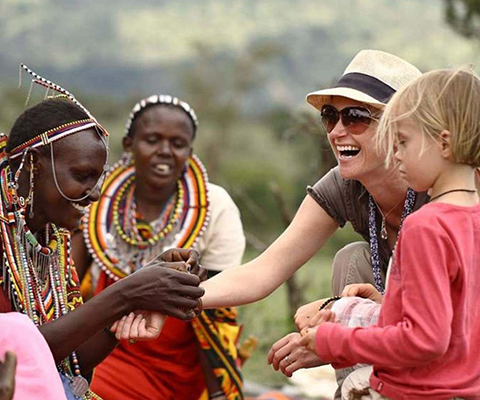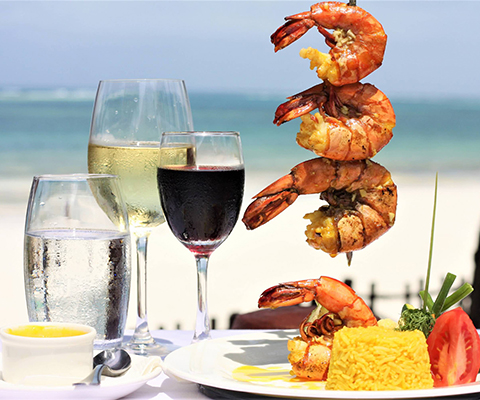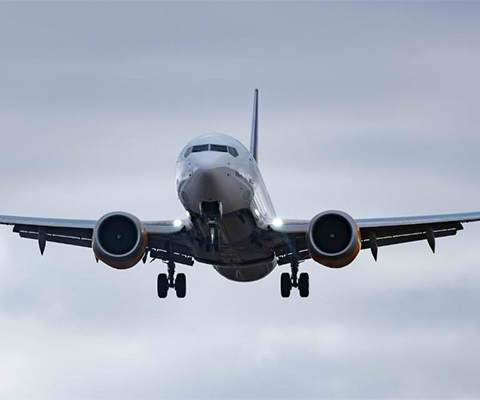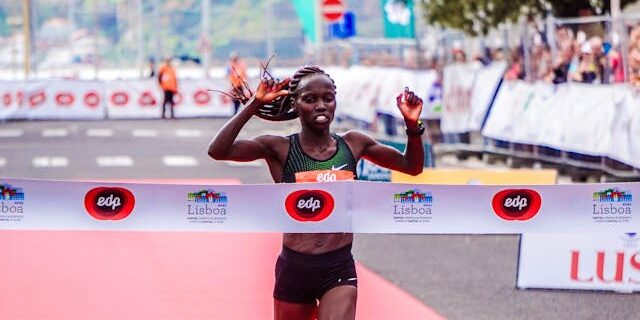By Elly Nyaga
Kenya is famed as the home of elite long-distance runners and offers a range of marathon events year-round. As a marathon enthusiast or even a curious traveler looking to challenge yourself, running in Kenya allows you to push your limits, watch beautiful landscapes, and experience a rich culture. This guide highlights Kenya’s top marathon events, travel logistics, and practical advice to help you prepare.
The Top Kenyan Marathon Events
Below are some of the races that you should consider taking part in, either as a first-time runner or a seasoned athlete.
-
The Standard Chartered Nairobi Marathon
This marathon was established in 2003 by the Standard Chartered Bank. The event supports community development through its initiative “Seeing is Believing. It also provides opportunities for local talent, boosts Kenyan tourism, and internationally raises the Kenyan profile. As the first major marathon in Kenya, it has brought together both foreign and local runners. It features multiple race categories, including a full and half marathon, a 10km run, a wheelchair race, and a family fun run, all of which take place in Nairobi, Kenya.
-
The Lewa Safari Marathon
The marathon was launched in 2000 to raise funds for conservation and local community projects. It is one of a kind as it takes place inside the Lewa Game Reserve every year in June. The Tusk Trust and the Lewa Wildlife Conservancy have partnered with Safaricom Ltd as the main event organizers and supporters. The race course is set across savannah plains, river banks, and through acacia woodland, making it one of the world’s toughest marathons. It is an all-inclusive event as it offers full and half marathons, 10km, and a children’s 5km race.
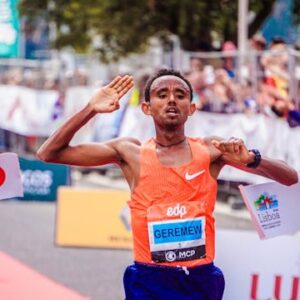
Pushing limits at the Eldoret City Marathon—home of champions
Founded in 2018, this event offers a platform for young and lesser-known long-distance runners to showcase their talent and gain recognition from agents, managers, and the international running community. It also promotes and advocates for environmental conservation, which serves as a platform for mass tree planting as a solution to climate change. Each year, participants are encouraged to plant a minimum of one million trees as part of the climate conservation initiative.
It features a 42.2km marathon, a 10km fun run, and takes place annually within the Eldoret CBD and its surroundings. Eldoret is recognized globally as the training ground for many Kenyan endurance athletes, and the city boasts a cool climate ideal for distance running. This event is one of the highest-paying in Africa. Winners, both men and women are awarded Kshs. 3.5million each and cash prizes are awarded to the top twenty finishers.
-
The Amazing Maasai Mara Marathon
The marathon takes place in the Maasai Mara region, offering participants a chance to engage with the local community and experience the rich Maasai culture. Since 2011, this event’s main objective has been to support local education for Maasai girls through the Amazing Maasai Girls Project (AMGP). The event takes place every year in June and participants run through the savannahs, across hilltops, through forests, and past Maasai villages, witnessing breathtaking views of the African landscape and wildlife. Available distances include full and half marathons and a 10km run.
-
The Nairobi City Marathon
The Nairobi City Marathon offers categories in a full and half marathons, 10km Expressway run, and a 4km family fun run. It was launched in 2022 to commemorate Kenyan former president H.E Uhuru Kenyatta for his infrastructural development during his governance. Also, the event showcases the beauty of Nairobi City and Nairobi National Park. The race course is mainly flat terrain with gentle inclines mainly through the Nairobi Expressway. It takes place annually and awards prize money to top performers in the 42km, 21km, 10km, and corporate challenge races for both men and women categories.
-
The Kenya Wildlife Marathon
The main objective for setting up this marathon is to raise funds and develop sustainable solutions for conservation of cheetahs and lions. The event was first inaugurated in 2015 and takes place annually at the Lukenya Hills. The race offers different distances 5km, 10km, half marathon, and full marathon. The course route runs across murram landscapes, plain grasslands and forest edge, elevated rock and finally descends to woodland. To run this marathon you need to be well prepared as it is largely climbing.
Where to Register for Kenyan Marathons
Each marathon has its own website indicating the race details and pricing as illustrated below:
| Marathon Event | Where to Register |
| Standard chartered Nairobi Marathon | www.nairobimarathon.com |
| Lewa Safari Marathon | www.lewasafarimarathon.com |
| Eldoret City Marathon | www.eldoretcitymarathon.co.ke |
| Amazing Maasai Marathon | www.amazinggirls.org/run-in-kenya-amazing-maasai-marathon |
| The Nairobi City Marathon | www.nairobicitymarathon.com |
| The Kenya Wildlife Marathon | www.kenyawildlifemarathon.com |
Why Kenya is the best for a Marathon
Statistically, over 70% of the world’s top marathon runners hail from Kenya. Below are some of the reasons why Kenya is ideal for marathon running:
-
- It has a perfect climate ideal for training: Regions like Iten and Eldoret have high altitude, which naturally boosts performance. Most races occur in the cool early mornings, which is ideal for distance running.
- Enjoy scenic routes, from the Great Rift Valley to the acacia trees, tea farms, and mountains, it is an opportunity to watch wildlife as you run.
- It is the home of champions: Kenya has produced both Olympic and world champions like Eliud Kipchoge and Faith Kipyegon.
- Growth potential: As an aspiring runner, you get the opportunity to learn from experienced mentors and access high-altitude training camps. This boosts your potential and helps you reach new levels.
- Cultural experience: You get to visit traditional homesteads and learn their history and their way of life. You gain a deeper understanding of the Kenyan running culture and the values that drive the country’s runners.
Preparation Tips
Running at altitude and in tough terrain requires thoughtful preparation. The following tips will help you stay ready:
- Get started early: Begin training at least 12-16 weeks before the event and increase your weekly mileage gradually.
- Altitude training: If possible, simulate altitude conditions or arrive early to acclimatize.
- Train in groups: Since running is communal in Kenya, consider joining a local club for motivation and pace support.
- Ensure that you have lightweight shoes with a strong grip as they work best for off-road events like Lewa.
- Adopt a balanced diet rich in carbohydrates, lean proteins, and hydration.
- Focus on mental training for resilience and train barefoot for agility. This enhances the mind-body connection, motor control, and balance.
- Cross-train: Supplement running with activities like strength training, stretching, and core workouts to improve your overall fitness and boost performance.
- Run hills: Most Kenyan races include elevation; therefore, incorporate hills and tempo runs into your schedule to increase endurance and improve your running form.
Race Day Essentials
If you have an upcoming race, ensure you have all the essentials in place. Here’s a quick checklist to help ease the pre-race stress:
- A printed race entry
- A passport and visa copy for international participants.
- Hydration pack
- Lightweight running gear
- Sunscreen, cap, and sunglasses
- Energy gels and electrolyte tablets
- Emergency contact info
- Trail shoes for off-road races (Lewa, Maasai Mara)
- Snacks like protein bars and nuts
Getting to Kenya for the Race
The first step is to secure your visa, which takes 1-3 days to process. You can do this online at the Kenyan immigration website. Secondly, book flights 2 to 3 months in advance to avoid inconveniences such as high prices, flight cancellations, and delays. Major international arrivals occur at Jomo Kenyatta International Airport in Nairobi and Eldoret International Airport.
Accommodation and Transport
Once you get to Kenya, you need a comfortable place to stay in preparation for the race. Nairobi and Eldoret offer affordable hotels, guesthouses, and Airbnbs while the rural events offer lodges, eco camps, and tents near the race venues. To secure the best deals and preferred locations, book early as during the races there is increased demand, high prices, and limited availability. For transport, taxis and ride apps like bolt and uber are easily accessible for the city races, and travel agencies or race organizers often provide shuttles for the rural races.
Health and Safety Tips
- Get vaccinated for Yellow fever, hepatitis A, typhoid, and get malaria prophylaxis for malaria-prone regions. This will build your immunity and reduce the risk of getting infected, which can impact your performance.
- Secure a medical emergency cover. Marathons are physically demanding, and as a runner, you are exposed to injuries. This cover provides financial protection and access to medical care in case of accidents and injuries.
- Stick to bottled or filtered water as it is reliably clean and safe to avoid getting sick.
Marathon Tourism in Kenya
Beyond the finish line, running in Kenya is only part of the adventure. You can extend your stay and explore the country’s top attractions:
- Visit Maasai Mara, Amboseli, or Tsavo National Parks for game rides, walking safaris, and canoe trips to view animals.
- Visit local tribes like the Maasai villages and learn their rich culture, tour coffee and tea plantations, and attend traditional music and dance shows.
- Enjoy local cuisine such as ugali and sukuma wiki, nyama choma, and fresh tropical fruits.
- Buy handcrafted jewelry, textiles, and art from the famous Maasai market
- Visit the coast and relax at Diani Beach, Lamu Island, and Watamu for your post-race recovery
- Hike Mount Kenya or trek the Great Rift Valley for a post-race thrill
Get Set For a Run That Could Change Your Life
Kenya is a destination where athletic passion meets natural beauty, cultural richness, and unforgettable adventure. If you aim to achieve a personal best or are simply seeking a meaningful travel experience, Kenya’s marathons provide the perfect platform. From registering for your preferred race, booking accommodation, managing travel logistics, and planning post-race tours, Travel Moran is here to guide you through every step. Our team specializes in curating runner-friendly experiences so you can focus on running your race and enjoying your journey. Visit our website, Travel Moran.com, or contact our travel specialists today and start planning your Kenyan marathon adventure.
Frequently Asked Questions
1. When are the major marathons held in Kenya?
Dates vary annually, often from April to November.
2. What is the difference between various Kenyan marathons?
Differences often lie in the terrain, altitude (e.g., Eldoret and Iten are high-altitude), prize money, and whether the event is certified by World Athletics.
3. How can I register for a Kenyan marathon
Most marathons have official websites or partner platforms where participants can register online.
4. Is there a registration deadline?
Yes, registration usually closes a few weeks before race day. Late registration may not be allowed or may incur extra fees.
5. What documents are needed to register?
A national ID/passport, a completed registration form, and sometimes a medical clearance, depending on the race.
6. How do international participants get to the marathon venue?
Nairobi has an international airport (JKIA), and from there, participants can take local flights or road transport to other cities like Eldoret.
7. Are there recommended hotels or accommodations?
Yes, organizers often partner with local hotels to offer discounted rates.
8. What is the elevation like in Kenyan marathons?
Many races, especially in the Rift Valley (e.g., Iten, Eldoret), are held at high altitudes (~2,000–2,400 meters), which may challenge sea-level runners.
9. Are there first aid stations and medical support on the route?
Yes, water stations and medical tents are placed every 5 km or as per race regulations.
10. Is there a time limit for finishing the race?
Yes, usually between 5 and 6 hours for full marathons.


